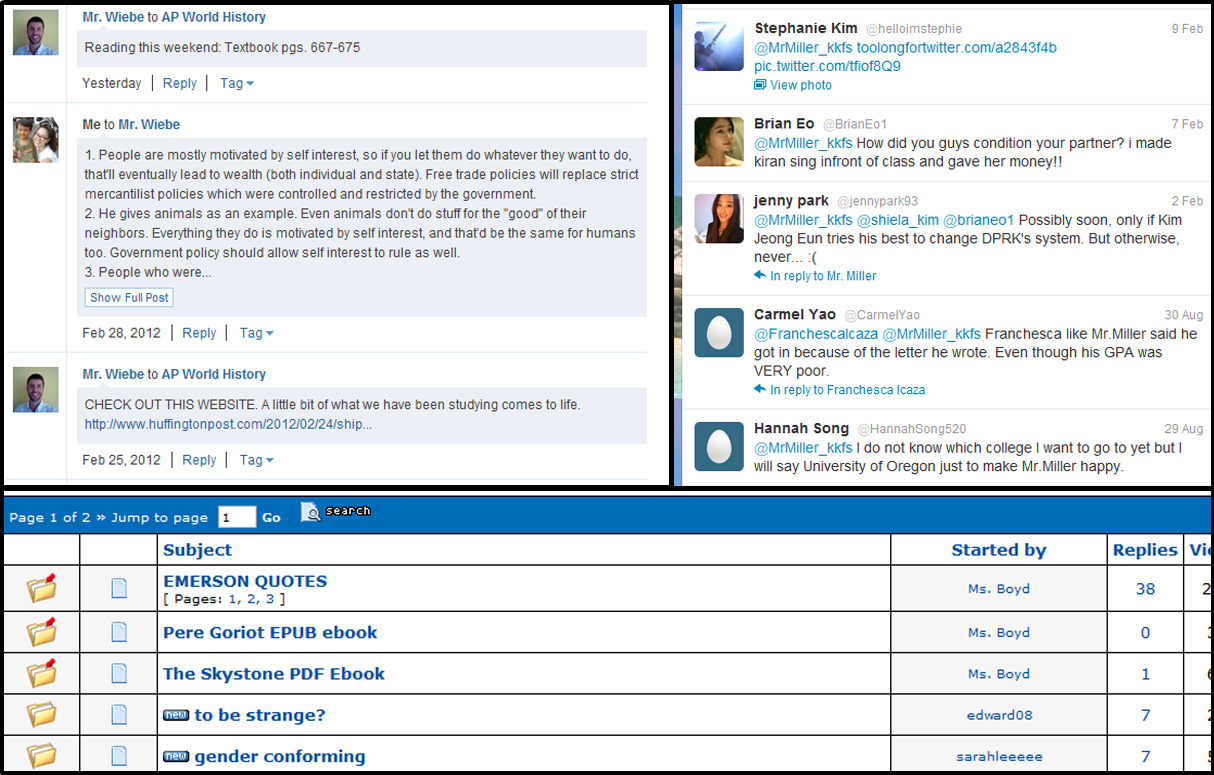
Teachers have generally encouraged students to think critically, write persuasively, and express their thoughts through tools such as essays, presentations, reports, and projects. In Korea Kent Foreign School (KKFS), it’s done a little differently.
An English teacher in KKFS, Ms. Jennifer Boyd, has been using an online discussion board for her junior and senior students to write about topics related to what they learned during class. Students are required to write regularly on the board throughout the week so that they may be able to continue the discussions and debates that were cut off by the short 50 minutes class time. “I realized that the Internet could be a great resource for teachers as well. With the online discussion board, both the students and the teacher are not restricted by time anymore. They can continue on and freely express their opinions with their classmates,” said Ms. Boyd.
Other teachers use social networking sites to carry on their class discussions. Mr. Morgan Miller, Kent’s Social Studies teacher, has started his own “Twitter Assignment”, encouraging students to post relevant videos, articles, or pictures that would trigger further discussions online. Students have to tweet at least 5 times a week, including two original postings that would start a new discussion topic. After being asked of the reasons why he started this, Mr. Miller replied, “Whether they like it or not, students are going to have to know how to use these social networking websites in the future. It’s going to take a large part of their lives, and I wanted them to get used to technology using commonly known sites like Twitter.”
Just like Ms. Boyd and Mr. Miller, most teachers in KKFS have at least one website that they use to inform students of future projects and homework, share helpful resources, and even occasionally give out online assignments. Many students have mixed feelings towards the usage of Internet websites for education. Cornelia Nguema, a senior in KKFS, reacted with frustration, saying that “some students are not as comfortable with computers as others” and that “they shouldn’t be encouraged to be technology-dependent.”
Others, however, see this as an opportunity to debate on a variety of issues that are not necessarily pertinent to the class lessons. “Online discussions provide much more freedom because there isn’t anyone to tell me what I should be saying. I can start a topic on practically anything, and it can turn into an interesting debate that wouldn’t happen otherwise,” said Stephanie Kim, a sophomore at KKFS. Many students agree with Kim in that these sites help them to write persuasively and diplomatically. Sarah Lee, a junior in KKFS, said, “You become responsible for what you said, and that makes you start thinking about how to phrase your opinions in a more diplomatic way.”
Although opinions on class websites are divided, it is true that students are beginning to exchange their ideas and opinions more often than before. With more teachers becoming aware of the influence of technology, these online classes will continue to be utilized and improved.

